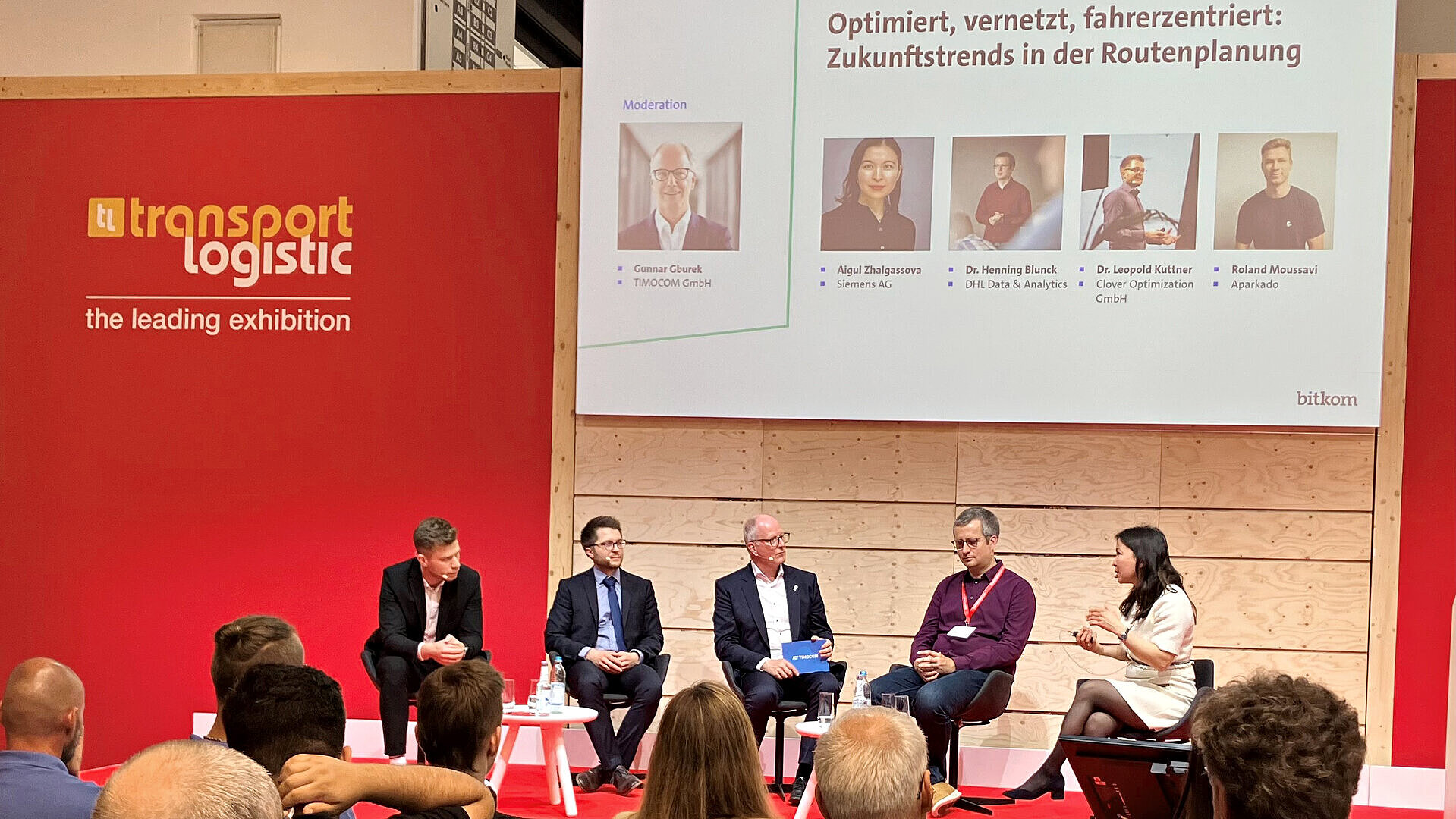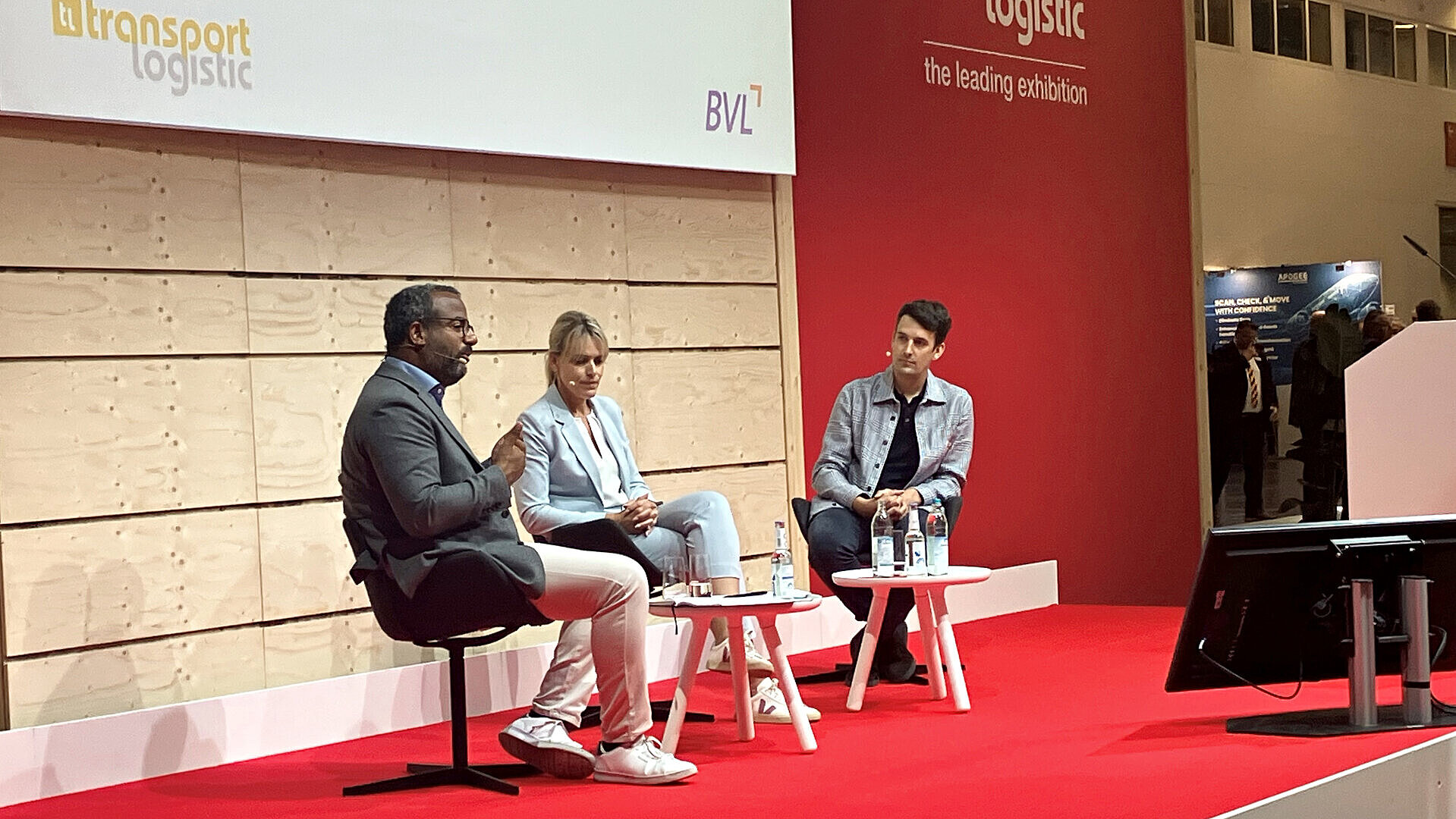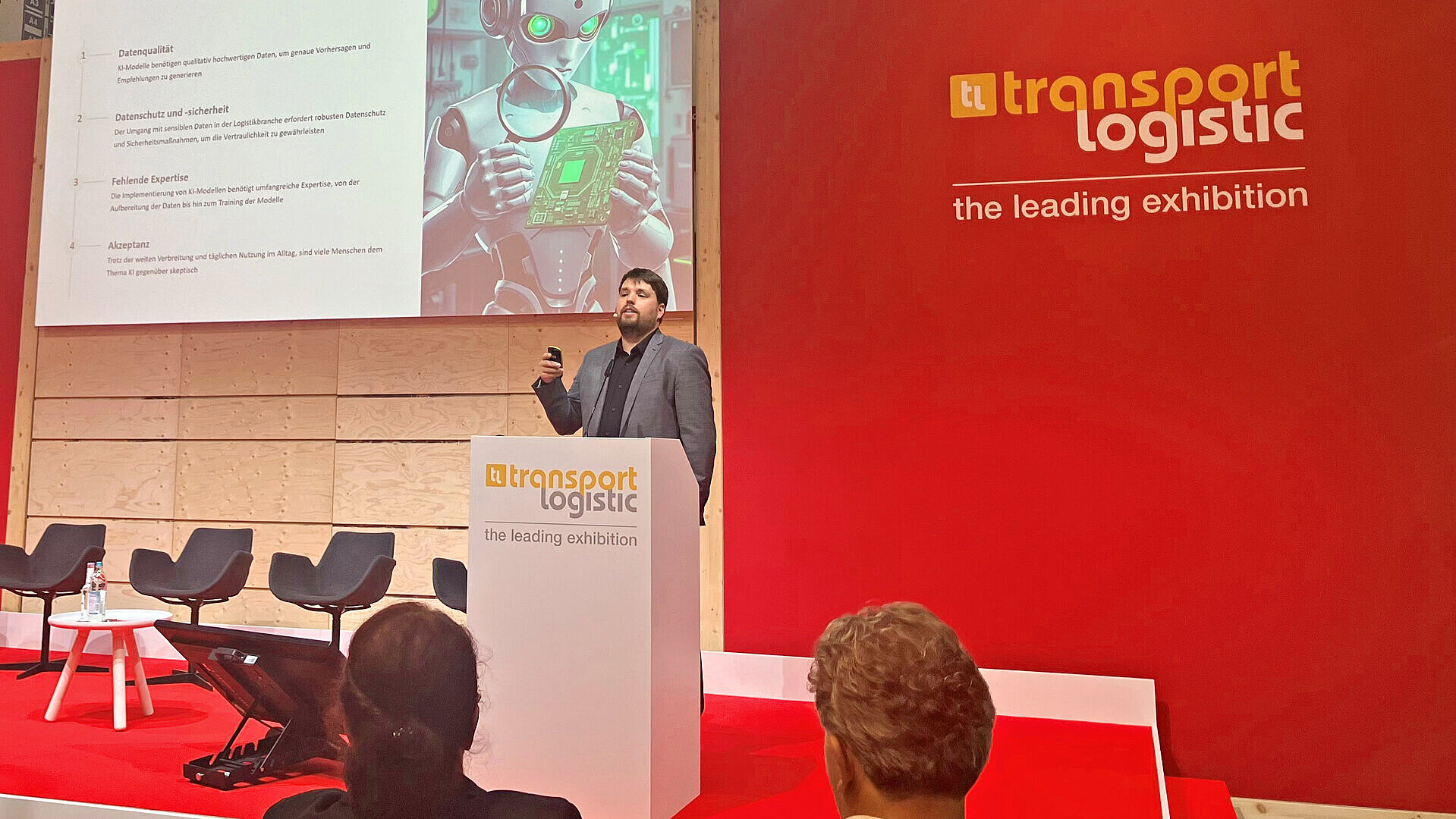
Artificial intelligence is becoming a competitive factor

The effective and meaningful use of the vast amounts of available data and its interlinking is increasingly becoming a decisive criterion that significantly influences the success of a company.
This also applies to rail freight transport, as was made clear at the discussion event entitled ‘Human and artificial intelligence – how can we make rail freight transport more competitive in the logistics chain?’ The event was organised by the journal Rail Business, which is published by the DVV Media Group.
The daily volume in 2025 will be 463 exabytes
Without artificial intelligence (AI), it is becoming increasingly difficult to maintain an overview of the vast amount of data. According to Agnes Eiband, Senior Scientist at Fraunhofer IML, there is a data explosion in logistics. ‘The daily volume in 2025 will be 463 exabytes,’ says the scientist. 1 EB corresponds to 1,000,000,000 gigabytes. AI is now able to summarise this data into usable insights.
With Omnistics, Fraunhofer offers barrier-free access to AI. According to Eiband, this enables precise forecasts for shipment volumes and transport costs. The tool also includes an AI-supported chat assistant for operational questions. It is similar to the Chat GPT model, but only uses data provided in the system.
Eiband also presented two railway-specific applications. For example, a wagon inspector can use a video camera to record a railway wagon from the side. This visual method provides the inspector with all the relevant data attached to the wagon that is important for checking its roadworthiness, for example. This data is automatically entered into the system and no longer needs to be recorded manually. Eiband presents another Fraunhofer project called Kirbi. The aim is to collect data from newly installed sensors, create interfaces between existing systems and use this to develop automated recommendations for dispatch. This should optimise the planning of transport, personnel and track capacities.
A number of hurdles in rail cargo
However, there are a number of hurdles to overcome before such AI projects can be initiated and implemented, particularly in rail freight transport. ‘We operate in 17 European countries. Each country has its own systems and regulations for handling data,’ said Arlene Bühler, CIO and CDO at DB Cargo, explaining the difficulties faced by freight railways. DB Cargo operates 2,600 trains every day, 60 percent of which cross national borders. ‘Every country has its own standards. This makes it a major challenge to collect data uniformly across Europe,’ said the IT expert.
She described the Digital Automatic Coupling (DAC) as a major and important project for DB Cargo. Until now, the wagons have had to be assembled manually in single-wagon traffic, regardless of the weather. Employees have to lift 20 kilograms for each coupling and walk the length of the train twice, 740 metres each time. However, the DAK can also be used to lay data lines so that the freight railway can receive up-to-date status information and react quickly if the data signals a hazard.
DB Cargo also uses cameras on bridges. These provide images that can be used to detect damage to wagons. ‘The wagon inspector is then automatically notified when damage is detected,’ said Bühler.
AI becomes an absolutely crucial competitive factor
For Caroline Calmund, Head of Regional Transport at Rhein Cargo, there is no doubt: ‘AI will be an absolutely crucial competitive factor in the coming years.’ The technology is not just for large corporations, but can also help small and medium-sized enterprises to simplify their processes and thus reduce costs. When implementing such projects, it is extremely important to involve employees and allay their fears that AI will make their jobs redundant. "This issue tends to cause anxiety among employees, especially at the beginning. Companies need to address this with early information and training,‘ said Calmund. The freight railway is currently looking closely at the possibilities of AI, even though concrete AI projects are still in their infancy. ’We don't want to miss the boat," said the Rhein-Cargo manager.
Pélagie Mepin-Koebel, Country Manager Germany at Everysens, a provider of transport management systems (TMS) for rail cargo, also sees a difference between rail and road in freight transport. She said that digitalisation in the rail sector is not nearly as advanced as it is for trucks. ‘Excel is still widely used,’ said Mepin-Koebel. Everysens offers TMS for the industry that covers the entire transport chain. But she made no secret of the fact that it is difficult to obtain the necessary information from freight railways or network operators, especially when transport is cross-border. However, Everysens' tools can be used to collect and evaluate a wide range of data, which can then be used as a basis for capacity planning in dispatching. ‘This enables dispatchers to better determine whether they need 300 or 250 wagons for a particular order, for example,’ said Mepin-Koebel.
Data protection and IT security play an enormous role
Despite all the enthusiasm, Bühler pointed out an important aspect of AI application: ‘Data protection and IT security play an enormous role,’ said the DB Cargo manager. That is why DB Cargo concludes data agreements not only with customers and partners, but also within the group to ensure that data security requirements are met.
Calmund pointed out another reason why AI will become increasingly important in the future. Many colleagues will be retiring in the next few years. They have a wealth of experience and are currently using this knowledge to make important decisions. To ensure that this expertise is not lost, one option is to build up this knowledge in AI. (cd)



